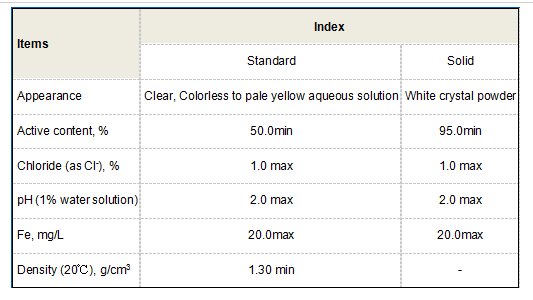diethylenetriamine penta methylene phosphonic acid
Diethylenetriamine Penta Methylene Phosphonic Acid An Overview
Diethylenetriamine Penta Methylene Phosphonic Acid (DTPMPA) is a versatile organic compound that belongs to the class of phosphonic acids. Its unique structure and properties make it an important additive in various industrial applications, particularly in water treatment, detergents, and chemical processes. Understanding DTPMPA's characteristics, uses, and environmental implications sheds light on its significance in modern industrial practices.
Chemical Structure and Properties
DTPMPA is a chelating agent that contains multiple phosphonic acid groups. Its chemical formula is C10H20N2O10P5, which reflects its complex structure. The presence of five phosphonic acid groups enables DTPMPA to bind to metal ions effectively, rendering it a powerful chelator. The compound is soluble in water, which enhances its utility in aqueous applications. The pH stability and thermal resilience of DTPMPA make it an attractive choice for formulations that require durability under various conditions.
Applications of DTPMPA
DTPMPA is primarily employed in water treatment processes, serving as a scale inhibitor and corrosion inhibitor. In industrial water systems, such as cooling towers and boilers, deposits can form from mineral buildup, leading to inefficiencies and potential equipment damage. DTPMPA works by preventing the precipitation of scale-forming minerals, such as calcium and magnesium, thus promoting smoother operation and extending the lifespan of equipment.
diethylenetriamine penta methylene phosphonic acid

Additionally, DTPMPA's chelating properties make it valuable in the formulation of detergents and cleaning agents. It enhances the effectiveness of these products by binding metal ions that can interfere with cleaning efficiency. By sequestering calcium and magnesium ions, DTPMPA improves sudsing and solubility in hard water conditions, making it a preferred ingredient in many household and industrial cleaning formulations.
In the agricultural sector, DTPMPA is used as a chelating agent for micronutrients, facilitating their absorption by plants. This property is particularly important in the formulation of fertilizers, where DTPMPA helps ensure that essential nutrients are bioavailable for plant uptake, enhancing crop yield and health.
Environmental Considerations
While DTPMPA offers numerous benefits in industrial applications, its environmental impact warrants attention. The persistence of phosphonic acids in the environment can raise concerns about potential bioaccumulation. Therefore, understanding the degradation pathways of DTPMPA is crucial for assessing its environmental footprint. Researchers are exploring methods to enhance the biodegradability of phosphonic acids, leading to safer alternatives that maintain efficacy without compromising ecological integrity.
Conclusion
Diethylenetriamine Penta Methylene Phosphonic Acid is a multifaceted compound that plays a vital role in various industries, from water treatment to agriculture. Its ability to chelate metal ions and enhance product performance makes it an invaluable additive. However, balancing its benefits with environmental considerations is essential. Continuous research and innovation are necessary to optimize its applications while minimizing potential ecological impacts. As industries strive for more sustainable practices, compounds like DTPMPA will continue to be scrutinized and adapted to meet both performance and environmental standards, ensuring their role in a greener future.
-
Understanding Polycarboxylic Acids: Properties, Applications, and Future PotentialNewsJul.28,2025
-
Scale Inhibitor Explained: How to Protect Your System from Limescale and Hard Water DamageNewsJul.28,2025
-
Scale and Corrosion Inhibitors: Essential Chemicals for Industrial Water System ProtectionNewsJul.28,2025
-
Polyaspartic Acid: A Biodegradable Polymer for Sustainable ChemistryNewsJul.28,2025
-
Isothiazolinones: A Versatile Antimicrobial Class with Industrial Power and Regulatory ChallengesNewsJul.28,2025
-
A Deep Dive into 2-Phosphonobutane-1,2,4-Tricarboxylic Acid (PBTC)NewsJul.28,2025





